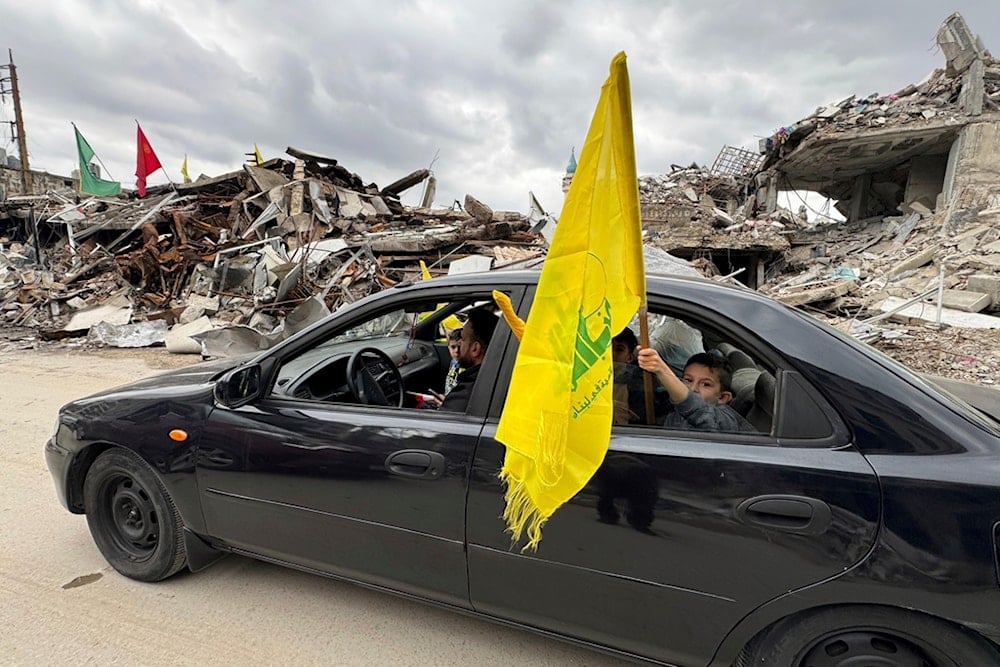Hezbollah fighters to be liberated in second phase of Gaza ceasefire
The second phase of the Gaza ceasefire deal will see civilians detained from Gaza and Hezbollah fighters allegedly detained in southern Lebanon released.
-

A boy holds a Hezbollah flag following a ceasefire between the Israeli occupation and Hezbollah on Nov. 28, 2024, in Nabatiyeh, southern Lebanon (AP)
A senior Hamas source revealed to Al Mayadeen that the release of all detainees captured after October 7, including Hezbollah fighters, will be postponed to the second phase of the prisoner exchange.
Speaking on Friday, the source noted that the first phase of the ceasefire agreement would involve the release of Palestinian prisoners sentenced prior to Operation al-Aqsa Flood operation. This phase will also include the release of women, children, and civilians detained during the operation.
It is noteworthy that during its aggression on Lebanon, the Israeli military published videos claiming to show the capture of Hezbollah fighters. However, Hezbollah has neither confirmed nor denied these claims.
Prisoner swap favors Resistance
A Palestinian source disclosed exclusive details to Al Mayadeen regarding the prisoner exchange agreement tied to the ceasefire deal.
Speaking on Friday, the source stated that for every female or child captive released by the Palestinian resistance, 30 Palestinian prisoners, including women and children, would be freed. Similarly, for every elderly captive aged 50 or older, or for those suffering from illnesses, 30 elderly or sick Palestinian detainees will be released.
The source further elaborated that for each Israeli female soldier released, 30 Palestinian prisoners serving life sentences and 20 others with lengthy sentences—who have 15 years or less remaining—will be freed.
The initial phase of the agreement focuses on Palestinian prisoners who were previously part of the 2011 exchange deal but were later rearrested by Israeli authorities, numbering 47 individuals.
Additionally, the agreement ensures that Palestinian prisoners freed under this deal would not be rearrested on the same charges for which they were previously detained. They will not be required to serve the remainder of their initial sentences, nor will they need to sign any documents as a condition for their release.

 2 Min Read
2 Min Read








